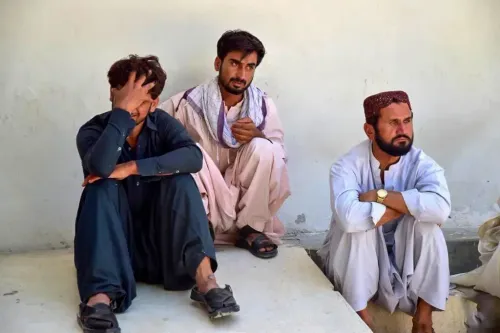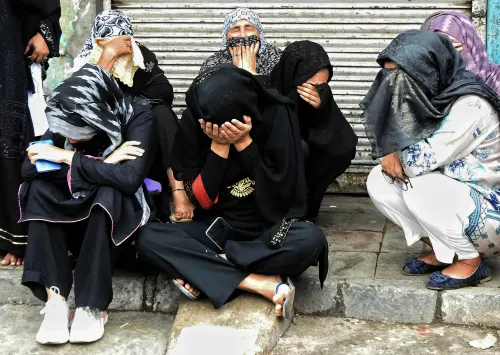Is Khalistani Terrorist Pannun's Support of Trump's Tariffs a Betrayal of Punjab?

Synopsis
Key Takeaways
- Pannun's support for Trump's tariffs poses economic risks to Sikhs.
- The dairy sector is crucial to Punjab's economy.
- Political agendas should not compromise Sikh livelihoods.
- American corporations could threaten small-scale farmers.
- Community welfare and economic stability must come first.
Washington, Aug 17 (NationPress) The endorsement of US President Donald Trump's elevated tariffs on Indian exports by Gurpatwant Singh Pannun, a pro-Khalistani figure, and his suggestion for a staggering 500 percent increase, poses a significant threat to the Sikh community's economic stability. This stance indicates that his anti-India sentiments overshadow the welfare of Sikhs, as per a recent report.
According to the Khalsa Vox report, "For someone who professes to advocate for Sikh rights, endorsing a policy that jeopardizes the livelihoods of Punjab's diligent Sikh farmers and dairy workers is perplexing and potentially hypocritical." It further emphasizes that Pannun's support for Trump's tariffs is "not in favor of Sikhs or Punjab" but is indeed a betrayal.
The economy of Punjab is predominantly agricultural and dairy-focused, with essential exports like basmati rice, textiles, and processed foods forming a considerable part of India's trade with the US. The tariffs imposed by Trump would elevate the prices of these products in American markets.
Moreover, if India opens its agricultural markets in response to the tariffs, American dairy and agricultural corporations could penetrate Indian markets. Backed by substantial subsidies, these American giants could undermine the small-scale Sikh farmers and cooperatives such as Amul, as outlined in the report. This situation not only threatens economic stability but also endangers cultural traditions integral to Sikh identity tied to land and agriculture.
The report highlights, "Consider the dairy industry, a crucial pillar of Punjab's economy. Numerous Sikh families depend on it for their livelihood. The takeover by US dairy corporations raises concerns about the future of these small farmers. The very principle of Sikh self-sufficiency, often championed by Pannun, could falter under the influx of cheap imports."
Predictions suggest a 40-50 percent decline in Indian exports to the US if tariffs rise, disproportionately affecting the Sikh community.
Khalsa Vox's findings suggest, "Pannun's position reveals a concerning contradiction. His rhetoric is filled with anti-India zeal, yet his policy choices inflict economic harm on Sikhs. By supporting a trade war detrimental to Punjab's farmers, he prioritizes political vendettas over community welfare. If his true allegiance rests with Punjab, why back initiatives that threaten Sikh livelihoods? The answer appears clear: for Pannun, anti-India theatrics take precedence over the well-being of Sikhs."
The future of Punjab hinges on policies that defend farmers, strengthen dairy cooperatives, and promote fair trade, rather than engaging in political posturing that jeopardizes livelihoods for personal agendas, the report concludes.
"Pannun's endorsement of Trump's tariffs does not serve the interests of Sikhs or Punjab. Fundamentally, it is a betrayal."









